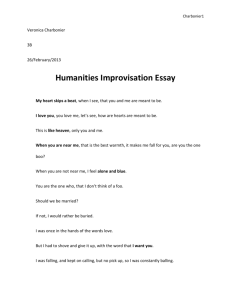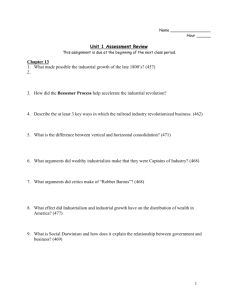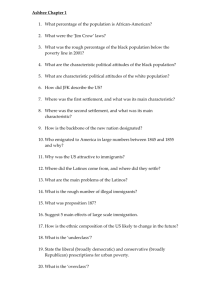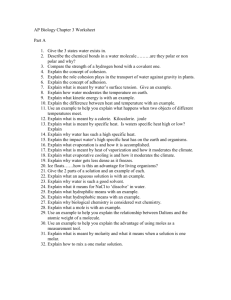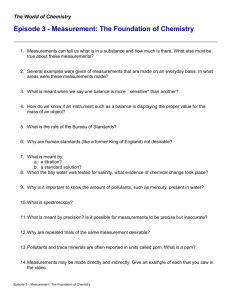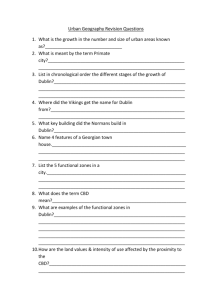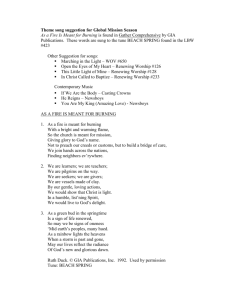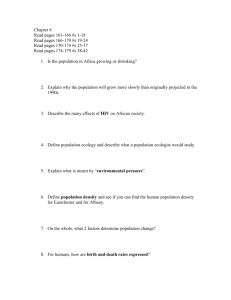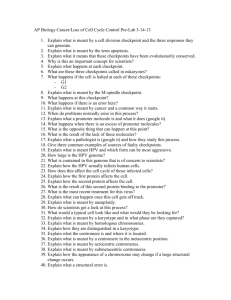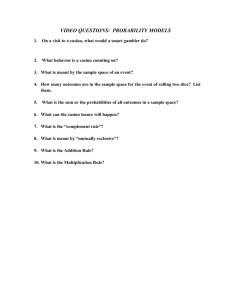Natural Sciences
advertisement
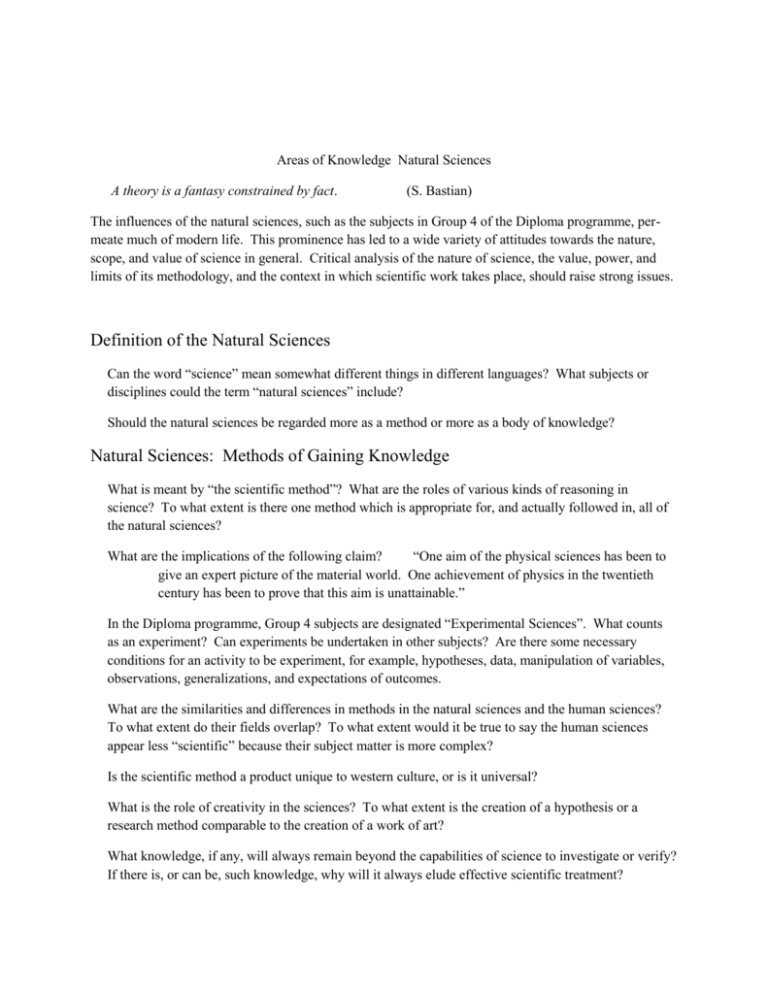
Areas of Knowledge Natural Sciences A theory is a fantasy constrained by fact. (S. Bastian) The influences of the natural sciences, such as the subjects in Group 4 of the Diploma programme, permeate much of modern life. This prominence has led to a wide variety of attitudes towards the nature, scope, and value of science in general. Critical analysis of the nature of science, the value, power, and limits of its methodology, and the context in which scientific work takes place, should raise strong issues. Definition of the Natural Sciences Can the word “science” mean somewhat different things in different languages? What subjects or disciplines could the term “natural sciences” include? Should the natural sciences be regarded more as a method or more as a body of knowledge? Natural Sciences: Methods of Gaining Knowledge What is meant by “the scientific method”? What are the roles of various kinds of reasoning in science? To what extent is there one method which is appropriate for, and actually followed in, all of the natural sciences? What are the implications of the following claim? “One aim of the physical sciences has been to give an expert picture of the material world. One achievement of physics in the twentieth century has been to prove that this aim is unattainable.” In the Diploma programme, Group 4 subjects are designated “Experimental Sciences”. What counts as an experiment? Can experiments be undertaken in other subjects? Are there some necessary conditions for an activity to be experiment, for example, hypotheses, data, manipulation of variables, observations, generalizations, and expectations of outcomes. What are the similarities and differences in methods in the natural sciences and the human sciences? To what extent do their fields overlap? To what extent would it be true to say the human sciences appear less “scientific” because their subject matter is more complex? Is the scientific method a product unique to western culture, or is it universal? What is the role of creativity in the sciences? To what extent is the creation of a hypothesis or a research method comparable to the creation of a work of art? What knowledge, if any, will always remain beyond the capabilities of science to investigate or verify? If there is, or can be, such knowledge, why will it always elude effective scientific treatment? What can be meant by Poincaré’s comment that “It is through science that we prove, but through intuition that we discover”? Natural Sciences and Knowledge Claims Is science about establishing cause and effect relationships? If so, how is this acjieved? What may Poincaré have meant by “Science is built of facts the way a house is built of bricks; but an accumulation of facts is no more science than a pile of bricks is a house”? How different are the knowledge claims of those disciplines that are primarily historical, such as evolutionary biology, cosmology, geology, and paleontology, from those which are primarily experimental, such as physics and chemistry? What kinds of explanations do scientists offer, and how do these explanations compare with those offered in other Areas of Knowledge? What are the differences between theories and myths as forms of explanation? To what extent can all natural sciences be understood through the study of just one science, for example, physics? If biology relies on chemistry, and chemistry relies on physics, can it be said that all natural sciences are reducible to physics? If so, what would be the implications of this position? Is scientific knowledge progressive? Has scientific knowledge always grown? In this respect, how do the natural sciences compare with other Areas of Knowledge, for example, history, the human sciences, ethics and the arts? Could there ever be an “end” to science? In other words, could we reach a point where everything important in a scientific sense is know? If so, what might be the consequences of this? Is it accurate to say that much of science investigates entities and concepts beyond everyday experience of the world, such as the nature and behaviour of electromagnetic fields, subatomic particles, of the space – time continuum? To what extent do these entities actually exist? What consequences might questions about the reality of these entities have for the public perception and understanding of science? Natural Sciences and Values How does the social context of scientific work affect the methods and findings of science? What values and assumptions about knowledge underpin science? What findings might emerge from a consideration, for example, of whether or not scientific knowledge is amenable to public scrutiny, whether or not it is intrinsically worthwhile, and whether or not it will continue to be valid in the future? What could be meant by “I have been steeped in science all my life, now I am ready to pray”? (Stephen Hawking) Natural Sciences and Technology Is scientific knowledge valued more for its own sake or more for the technology which it makes possible? Is there any science which can be pursued without the use of technology? Should science be held morally responsible for the applications of their discoveries? To what extent would it be true to say that technological advances drive changes in values and morality? Is there any area of scientific knowledge which is morally unacceptable? Natural Sciences: Metaphor and Reality If natural sciences are defined as investigating the natural world, what is meant by “natural” or “nature” in this context? What difference might it make to scientific work if nature were to be regarded as a machine (for example, as a clockwork mechanism) or as on organism (such as some recent interpretations of the Gaia Hypothesis)? How useful are these metaphors? Does scientific language and vocabulary have primarily a descriptive or an interpretative function? Consider here expressions such as “selfish gene”, “artificial intelligence”, electric current”, “natural selection”, and “concentration gradient”. Are the models and theories which scientists create accurate descriptions of the natural world, or are they primarily useful interpretations for prediction, explanation and control of the natural world?
